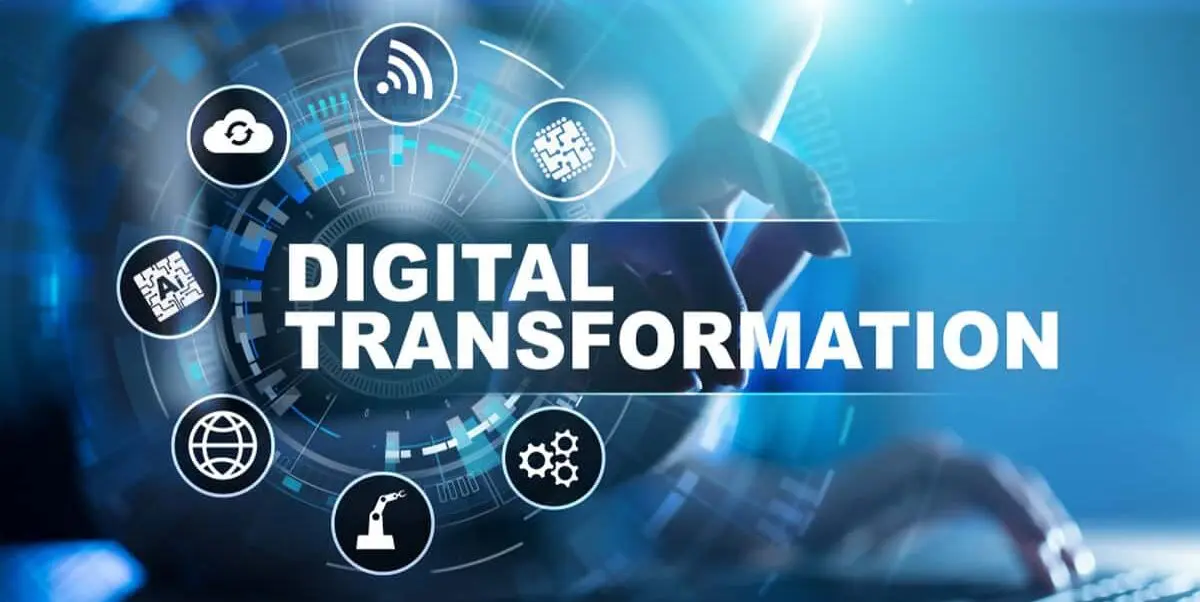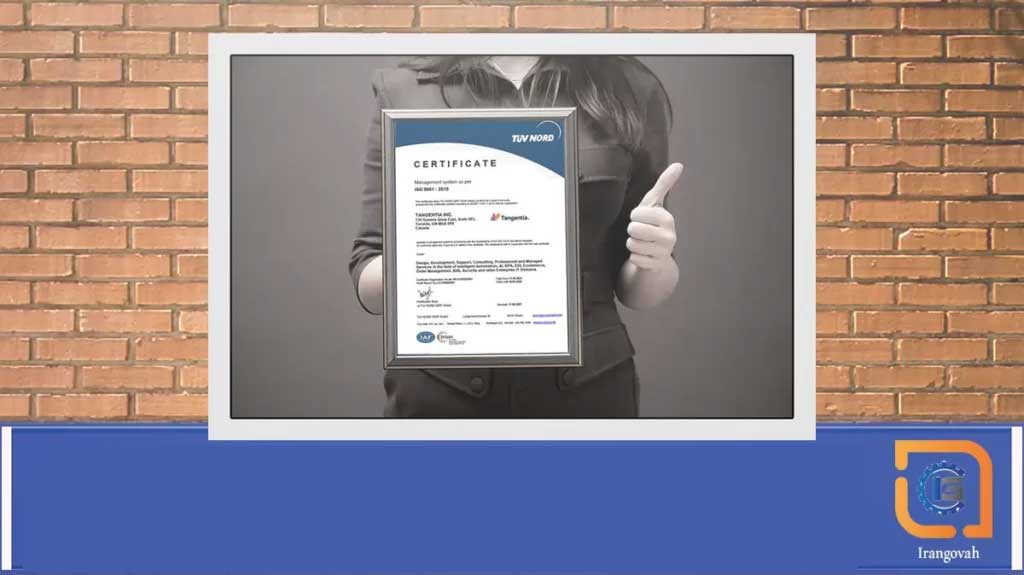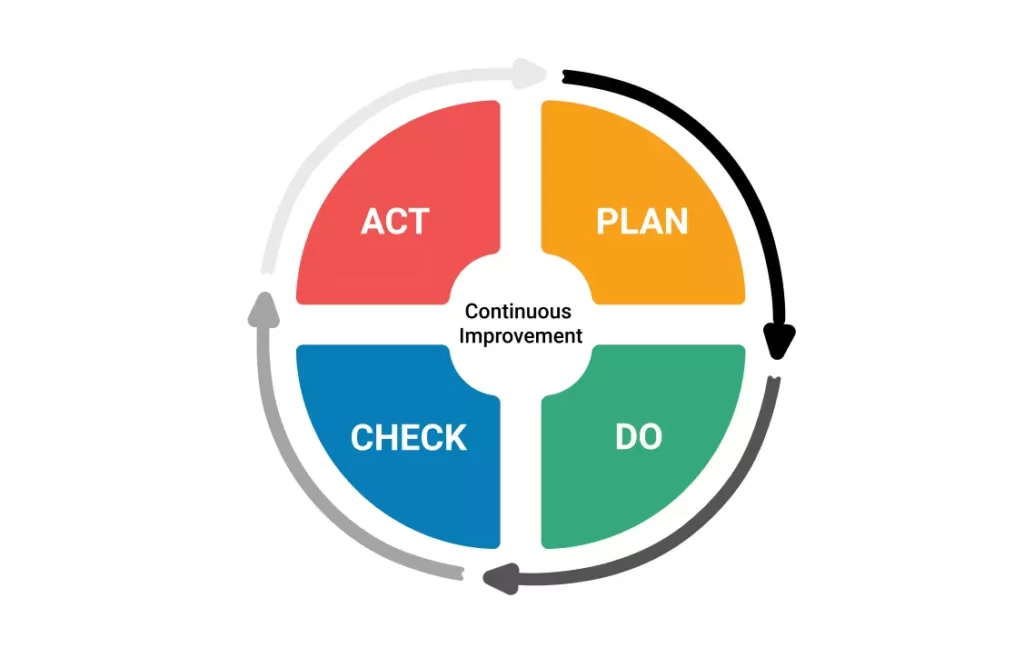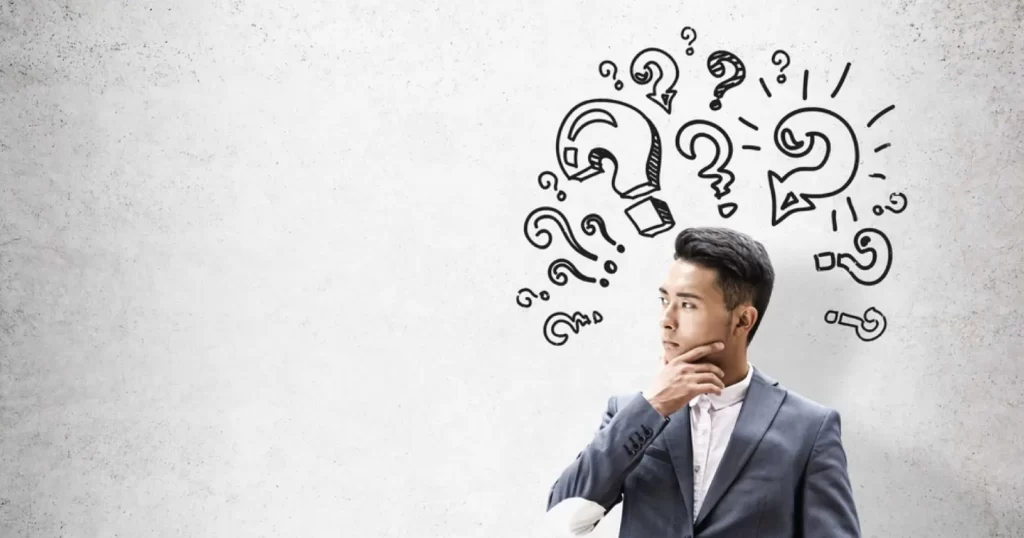Overview of Digital Transformation and IoT
In this article, we will explore how the Internet of Things (IoT) impacts digital transformation (Digital Transformation and IoT). Digital transformation is an ongoing process that assists organizations in achieving long-term growth through the integration and increased use of digital technology, aligning them with rapidly evolving industries.

The Internet of Things refers to connecting physical devices, vehicles, machines, buildings, and other items with computers or other devices via the internet. This emerging technology has influenced our lifestyle, changing how we think, act, and interact with each other. It has also altered our work methods by enabling large-scale monitoring, control, and automation, significantly impacting digital transformation across various industries.
How Does the Internet of Things Work?
IoT allows objects and devices to connect to a digital network, enabling sensors to collect device-related information. This technology enables software to monitor performance, gather data, and allows users to control it.
A key component of IoT is the connection among all IoT devices, forming what is known as the IoT ecosystem. This ecosystem includes IoT devices, security, network, gateway, cloud, applications, and users.
IoT devices sense their surroundings and collect data, which is then stored in cloud servers. This is achieved through sensors installed in physical objects like mobile phones, smartwatches, smart home devices, car devices, etc.
After receiving environmental data, IoT sensors share the collected data with the cloud. This connection between sensors and the cloud can be facilitated through mobile phones, satellites, Bluetooth, the internet, or other connectivity options.
Once data is transferred to the cloud, the cloud is responsible for processing, analyzing, and sending outputs. The complexity of these processes depends on the information received from the environment, system, and product. For instance, monitoring room temperature is considered a simple task, while events related to home security, like detecting an intruder, are more complex.
In the final stage, outputs are transmitted to users, for example, through alerts, text messages, etc. At this stage, the user might need to actively interact with an IoT device or actions might be performed automatically.
The Impact of IoT on Digital Transformation
You might wonder how IoT contributes to digital transformation. Digital transformation is a continuous process helping organizations to achieve long-term growth through the integration and increased use of digital technology, aligning them with rapidly evolving industries.
The Significant Impact of the Internet of Things on Digital Transformation
The Growing Reach of IoT
Undoubtedly, a significant factor influencing digital transformation is the Internet of Things (IoT). IDC predicts that by 2025, there will be 55.7 billion connected IoT devices, generating approximately 80 zettabytes (ZB) of data.
Utilizing IoT Data for Accelerating Digital Transformation
The valuable data generated by IoT devices can be utilized by organizations to expedite digital transformation. For instance, it can be used to assess customer needs and subsequently offer services based on those insights. Moreover, IoT can enhance customer engagement and satisfaction. It also enables employees to perform operations from any location at any time and facilitates the implementation of new tools and strategies.
How IoT Influences Organizational Digital Transformation
IoT impacts digital transformation in organizations by enabling new investment opportunities, reducing operational costs, improving customer experience, enhancing productivity and efficiency, improving decision-making, empowering business models, and increasing revenue.
IoT: Shaping the Future of Digital Transformation Across Various Sectors
IoT is becoming the future of digital transformation in various sectors, including healthcare, government and education, security, communications, agriculture, and transportation.
Accelerating Digital Transformation Through Leading IoT Trends
Recent Advancements in Digitalization and IoT
Digitalization has advanced significantly in recent years, creating more opportunities and resources for people and organizations worldwide. This advancement is closely linked with the latest innovations in IoT and its leading trends:
- Artificial Intelligence of Things (AIoT): Digital transformation is driven by the powerful combination of AI and IoT. On one hand, the use of machine learning and various advanced AI algorithms adds value to IoT activities. On the other hand, IoT enables the connection of AI and data-based inputs. Together, they facilitate digital transformation by providing big data and insights that increase productivity and efficiency.
- Blockchain Technology: This technology enables a decentralized network and has the potential to address IoT security concerns. It can be used across many industries as a platform for securely storing massive amounts of data. Additionally, it allows organizations to optimize processes, manage documents digitally, track orders, enhance digital collaborations, etc.
- 5G IoT Technology: The fifth generation of mobile network technology has significantly impacted IoT by enabling faster, more secure, and reliable connections than ever before.
- Digital Twins: Essentially, these are virtual copies of physical objects, devices, and systems using real-time IoT data, applying AI and data analytics to optimize performance. Digital twins are increasingly used in digital transformation in manufacturing, automotive, and healthcare.
- Wearable IoT Technology: This technology allows individuals to easily interact with other devices and digital systems, enabling them to monitor, control, and assess various processes and make intelligent decisions.
- Internet of Behavior (IoB): This technology assists in research and development by monitoring and tracking individual and collective human behaviors. Its goal is to analyze and understand more about the reasons and methods behind human technology usage, providing insights that can be valuable in converting leads to sales.

To obtain ISO certificates, you can contact Iran Govah through WhatsApp.
Benefits of IoT and Digital Transformation
IoT and digital transformation are highly beneficial for organizations looking to remain competitive. They help organizations achieve greater efficiency, cost savings, and enhanced customer engagement. Furthermore, IoT and digital transformation can be used for automating many tasks and activities, allowing employees to focus more on strategic tasks, make wiser use of their time, and increase their productivity.


